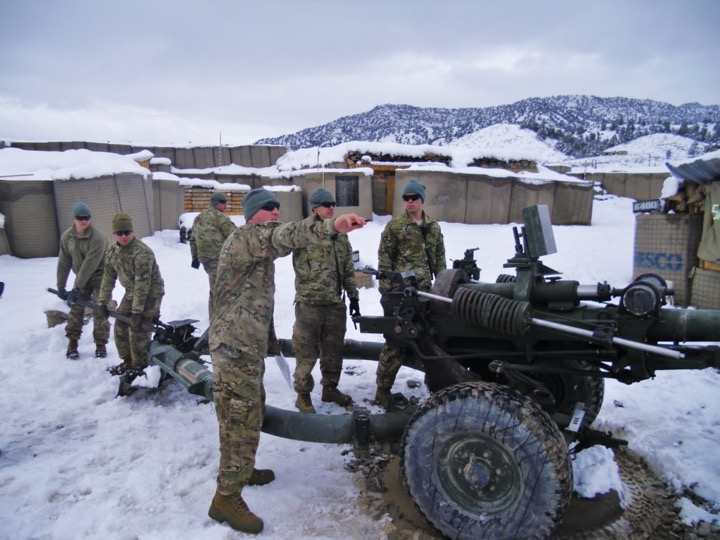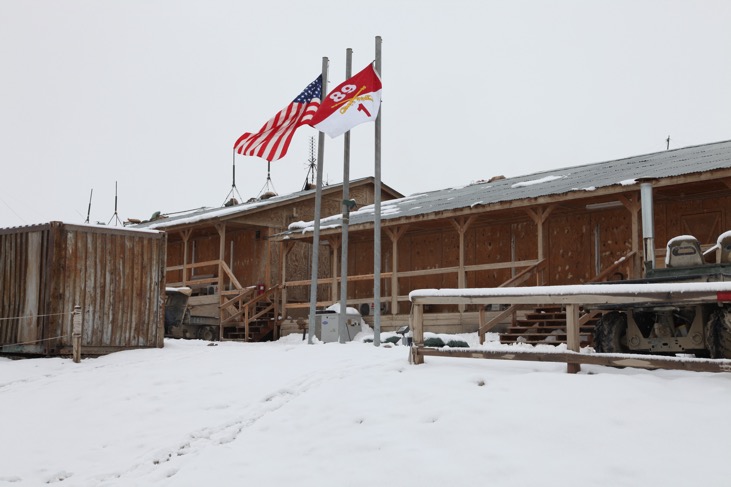Polygraph Statement of an Afghan Combat Linguist
31 July 2021
Howitzer crew at COP Zerok, January 2013 (DoD photo)
I began my work as a combat linguist working with the U.S. Army’s Alpha (“Attack”) Company, 1st Battalion, 28th Infantry Regiment, 4th Infantry Brigade, 1st Infantry Division at Combat Outpost (COP) Zerok, Paktika Province, Afghanistan. After a couple months with Attack Company, I next worked for an additional couple of months with Bravo (“Barbarians”) Company, 2nd Battalion, 14th Infantry Regiment, 2nd Brigade Combat Team, 10th Mountain Division, also at COP Zerok.
Then, a decision was made to shut down COP Zerok, and I was transferred to Forward Operating Base (FOB) Sharana. There, I was introduced to the Route Clearance Package (RCP 23), which conducted mine clearing, and I worked with them regularly until 15 May 2013.

FOB Sharana, February 2013 (DoD photo)
On 15 May 2013, a series of catastrophic events took place in which I was blown up by an improvised explosive device (IED) while I was on a dismounted patrol with a U.S. Army engineer company. After treatment at Bagram Air Base, I was released to the local hospital, and finally the doctors found that I had sustained a traumatic brain injury (TBI).
A month later, my employer, Mission Essential Personnel (MEP), called me for counterintelligence (CI) screening to get another job, in Kabul. I passed the interview and was introduced to the new job, but this job required a polygraph test. Although I was still under treatment by a psychological doctor for my injury, I nonetheless went through with the polygraph test, which I failed. I believe that my traumatic brain injury and nervousness during the exam resulted in my failing the test.
After another month, MEP again called me for CI screening, but this time they directly failed me in the CI screening with no questions asked because I had failed the polygraph test. I have documents proving this.
There is a process for Afghan interpreters who have worked for the U.S. military to be granted a Special Immigrant Visa (SIV). When I first applied, I was accepted into this process and granted approval, but after my employer sent the U.S. embassy in Kabul an email stating that I had failed the polygraph, they denied my case.
Later on, I sought new letters of recommendation from friends in Attack Company, and I applied again and again, but each time they denied my application due to the polygraph failure and insufficient length of employment. It’s been 8 years that I am struggling to get myself and my family to safety.
Now it’s the end of line, and I cannot tolerate it any more. The situation in Afghanistan is getting worse day by day with the U.S. withdrawal. I am basically on the run and hiding from the insurgents. The threat level is extremely high, and I am not able to hold it any more. I and my family are in great danger. If the Taliban catch me, they will kill me, and my son and wife, too.
Note: I have obtained a couple recommendation letters and have applied yet again for an SIV, but I am in principle not qualified, because the length of employment should be 2 years, while mine is one year, and my employer, MEP, rejected me in the Local National Linguist (LNL) CI screening because I failed the polygraph test, and I don’t think this time I will be approved.
